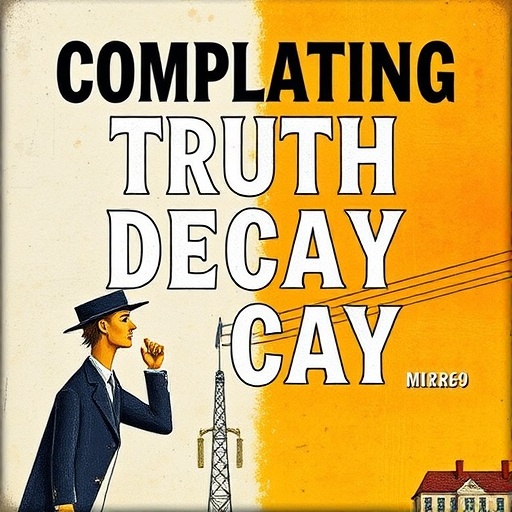In an era dominated by rapid information exchange and an insatiable appetite for bite-sized facts, the challenge of conveying scientific nuance has never been greater. On Wednesday, October 22, 2025, the CUNY Graduate School of Public Health and Health Policy (CUNY SPH), in partnership with the CUNY Institute for Implementation Science in Population Health (CUNY ISPH), will present a compelling event featuring acclaimed author and journalist A.J. Jacobs. His talk, titled “Battling Truth Decay: Communicating Nuance in a World Hooked on Fast Factoids,” promises to address the increasingly complex landscape of science communication in the modern age.
A.J. Jacobs is a figure well-known for his multifaceted approach to storytelling, weaving humor, scientific inquiry, memoir, and practical self-help into narratives that engage a broad spectrum of audiences. His background includes contributions to highly respected publications such as The New York Times, New York magazine, and Entertainment Weekly, as well as serving as editor-at-large for Esquire magazine. His media presence spans popular platforms like The Today Show, Oprah, The Colbert Report, Good Morning America, and multiple TED Talks, establishing him as a significant voice in the discourse on science and society.
The central theme of Jacobs’ upcoming presentation targets the phenomenon of “Truth Decay,” a term used to describe the diminishing role of facts and analysis in public life. This degradation challenges not only scientists and researchers but also the institutions responsible for safeguarding scientific integrity. Truth Decay exacerbates skepticism and mistrust, undermining societal progress and public health initiatives. Jacobs’ insights will explore strategies aimed at restoring faith in science through transparent, engaging, and nuanced communication.
Nash Rochman, assistant professor at CUNY SPH and investigator at CUNY ISPH, emphasizes the timeliness of Jacobs’ work. He notes that scientific communication today must overcome not only the public’s presumed boredom but also pervasive doubts regarding the credibility of research entities. Rochman anticipates a rich, interactive dialogue that will include audience participation, reflecting a dynamic approach to addressing these persistent challenges. The goal is to cultivate a space where complexity is respected rather than oversimplified for mass consumption.
The event is scheduled to take place on the CUNY SPH campus, located at 55 West 125th Street, in the 7th-floor auditorium of the building. This setting is symbolic: a hub of public health scholarship convening to dissect the intersecting issues of science dissemination, public trust, and evidence utilization. Hosting such a talk within an academic institution engaged in population health and implementation science underscores the vital link between research and practice.
Jacobs’ approach to storytelling is of particular relevance in an age where social media platforms often prioritize immediacy over depth. His ability to use humor as a vehicle to translate dense scientific concepts into accessible narratives encourages a reconceptualization of how evidence is framed and discussed in public forums. This is especially critical given the volume of misinformation and the speed at which it can propagate in digital ecosystems.
The partnership between CUNY SPH and CUNY ISPH for this event highlights the interconnectedness of academic disciplines working to enhance community health outcomes. While CUNY SPH focuses on training future public health leaders and advancing health policy, CUNY ISPH dedicates itself to implementation science—the study of effective methods to adopt and embed evidence-based interventions within real-world settings. Together, their collaboration signals a collective commitment to addressing not only the scientific content but also the transmission mechanisms vital to public comprehension and trust.
An understanding of psychological and sociological dimensions is fundamental when tackling the erosion of scientific trust. Jacobs’ talk will likely explore cognitive biases, the psychological appeal of simplicity, and the pitfalls of rapid information consumption, all of which contribute to the “truth decay” dilemma. Addressing these elements requires a balance between maintaining scientific rigor and fostering relatability, a nuanced artistry Jacobs has mastered.
The event, though free, requires registration—a detail reflecting the anticipated interest and the organizers’ intent to curate an engaged audience. This educational opportunity offers attendees a chance to participate in an evolving conversation about the future of science communication, particularly as it relates to public health challenges in a world saturated by information but often starved for understanding.
As misinformation increasingly jeopardizes public health interventions, especially during crises such as pandemics, the discourse facilitated by this event could not be more critical. Engaging with experts who navigate the delicate interplay between fact and narrative equips public health professionals, communicators, and the general public with tools to counteract falsehoods and reinforce evidence-based decisions.
Ultimately, Jacobs’ presentation is poised to ignite a renewed commitment to fostering scientific literacy through storytelling that respects complexity. This event exemplifies the proactive efforts of academic institutions to dismantle barriers between knowledge producers and the public, promoting a more informed, participatory, and resilient society.
Subject of Research: Science communication and public trust in scientific research
Article Title: Battling Truth Decay: Communicating Nuance in a World Hooked on Fast Factoids
News Publication Date: October 9, 2025
Web References:
– https://sph.cuny.edu/
– https://cunyisph.org/
References: None provided
Image Credits: CUNY SPH
Keywords: Public health, Science communication
Tags: A.J. Jacobs EventBite-Sized Information IssuesCombating Truth DecayCUNY Graduate School of Public HealthEngaging Audiences with HumorImpact of Fast FactoidsImportance of Scientific InquiryMisinformation in Modern SocietyNavigating Nuance in Mediapublic health communicationScience Communication ChallengesStorytelling in Science





